Description
Buy Fortum Ceftazidime 1g for injection
Description of Fortum:
Fortum Powder for Injection is an antibiotic medicine. It given by injection (usually in hospital) to treat serious bacterial infections such as septicaemia (blood poisoning), meningitis and lung infections in cysticfibrosis. It’s also used to treat complicated skin infections, abdominal infections, bone and joints infections, ear infections and complicated conditions, liver, kidney and urinary system, urinary tract infections. It contains ceftazidime, which belongs to the antibiotic class of medicine.
Your doctor may prescribe ceftazidime injections if you have a low white blood cell count (neutropenia) and fever and your doctor suspects you have a bacterial infection.
Men having surgery on their prostate gland (trans-urethral resection of the prostate or TURP) may be given this antibiotic to prevent urinary tract infections.
Fortum Injection contains a very useful drug named Ceftazidime . Ceftazidime is a 3rd generation, semisynthetic cephalosporin antibiotic. Cephalosporins are derivatives of 7 aminocephalosporic acid and closely related to penicillins in structure. That has the potential to be useful in treating gram-negative bacterial infections with respects to susceptible Enterobacteriaceae as well as Pseudomonas aeruginosa in dogs, cats, and reptiles. Ceftazidime is important to take the drug for the full time period as prescribed.If it disconnected during the therapy, it may result in ineffective treatment
Ingredients:
Active ingredient: ceftazidime;
1 vial contains ceftazidime (in the form of ceftazidime pentahydrate) 500 mg or 1 g or 2 g;
other components: sodium carbonate anhydrous.
Indication of Fortum:
FORTUM is indicated for the treatment of patients with infections caused by susceptible strains of the designated organisms in the following diseases:
To reduce the development of drug-resistant bacteria and maintain the effectiveness of Ceftazidime and other antibacterial drugs, Ceftazidime should be used only to treat or prevent infections that are proven or strongly suspected to be caused by susceptible bacteria. When culture and susceptibility information are available, they should be considered in selecting or modifying antibacterial therapy. In the absence of such data, local epidemiology and susceptibility patterns may contribute to the empiric selection of therapy.
Contraindications of Fortum:
Side Effects of Fortum:
Precautions and Warnings of Fortum Injection (Ceftazidime):
Other General Warnings
Talk to your doctor if:
Storage:
Before opening: Fortum Powder For Injection at 20º to 25°C. Protect from light.
After opening: Properly reconstituted solution of Ceftazidime are stable for 12 hours at room temperature or 3 days if refrigerated (5°C). Slight yellowing does not affect potency.
Shelf life:
3 year

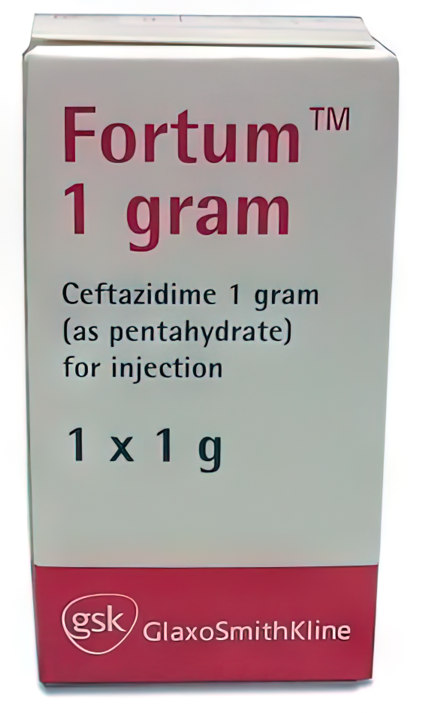
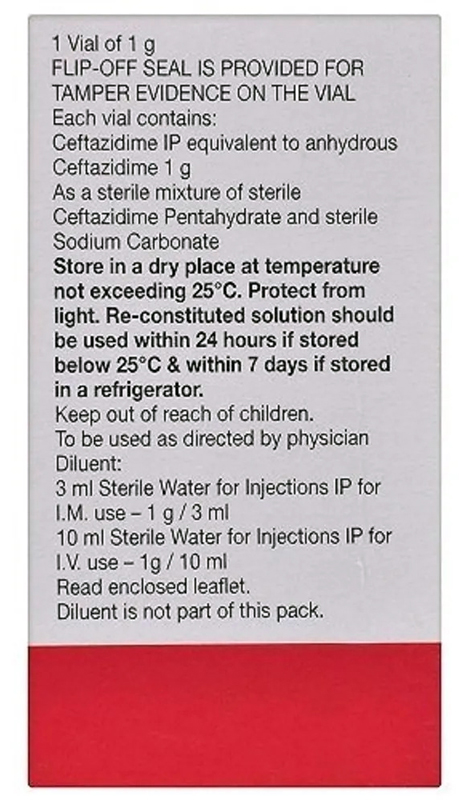
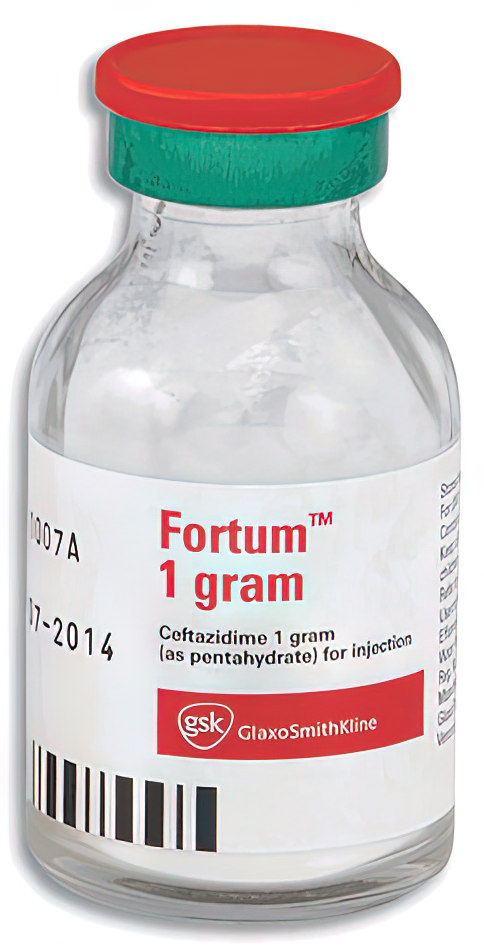
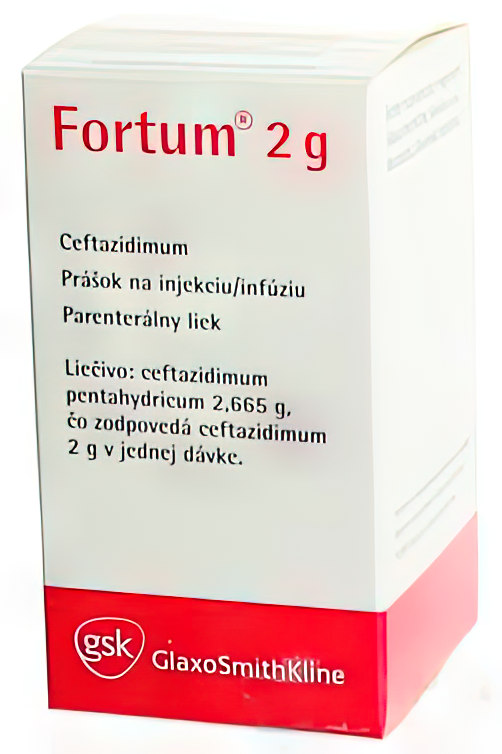
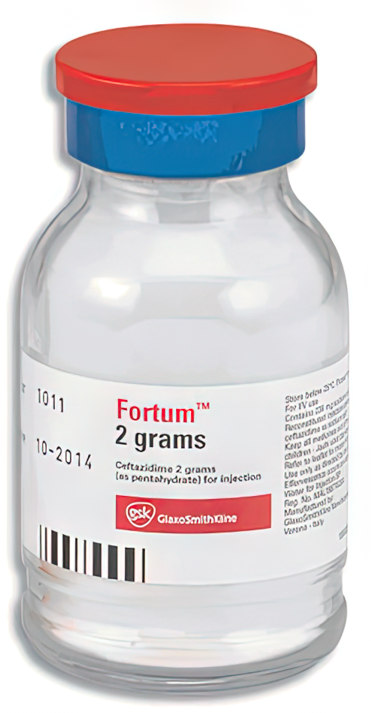
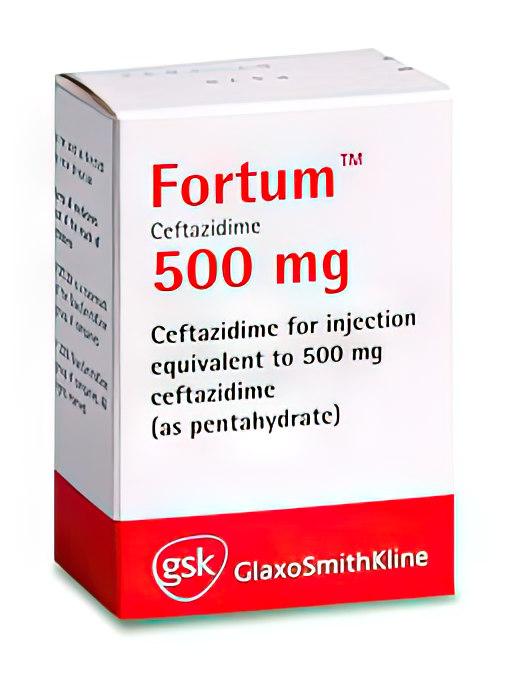

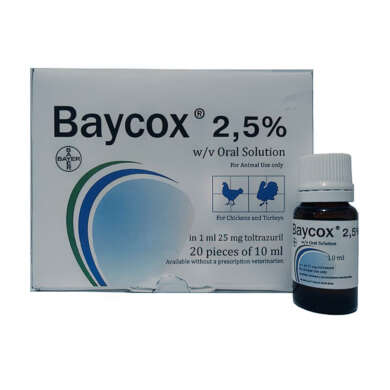
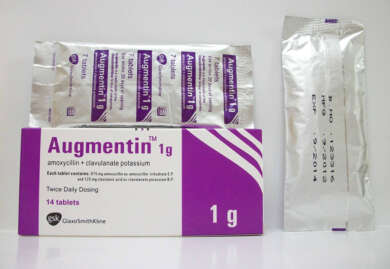
Reviews
There are no reviews yet.